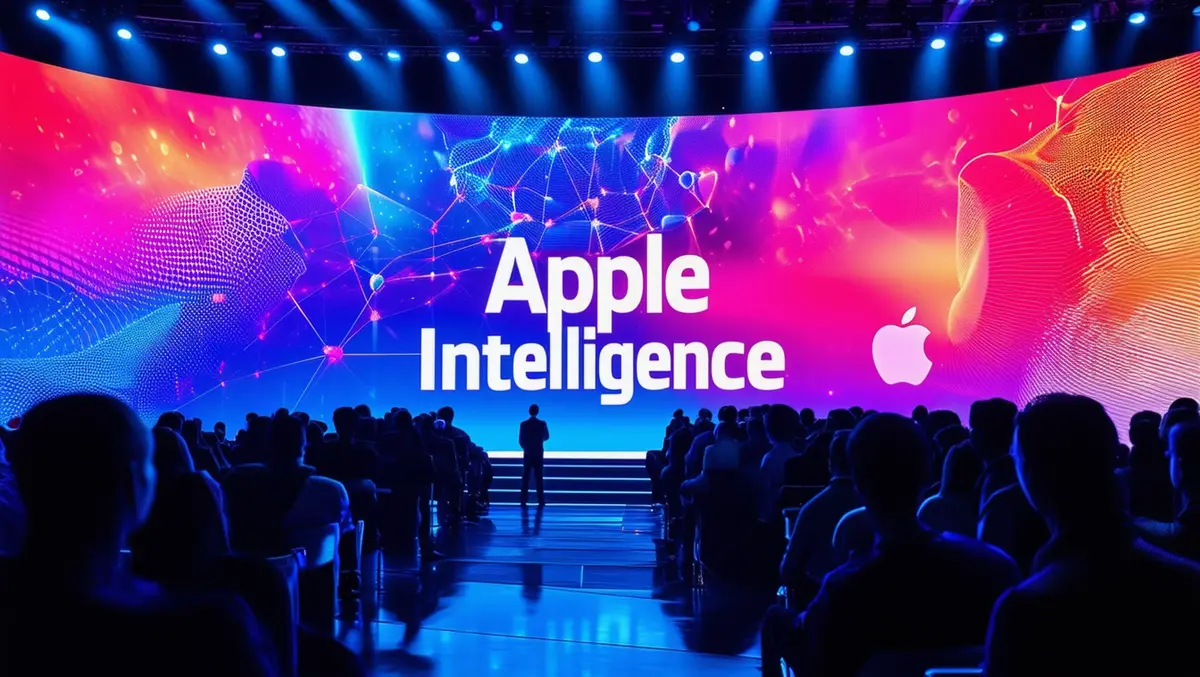
Industry reactions to Apple Intelligence debut at WWDC
At the recent Worldwide Developers Conference (WWDC), Apple made waves with the introduction of Apple Intelligence. This new AI integration aims to enhance user experience by fostering a more personalised interaction through Siri.
The enhanced Siri can now interpret and act on intricate user prompts, setting a new precedent in how consumers engage with their devices. Laura Lane, Marketing Director UK&I at HubSpot, shared her insights on the impact of Apple Intelligence on marketing strategies.
"Apple Intelligence's deeper, more intuitive AI integration through Siri allows for a personalised user experience that can interpret and act on nuanced user prompts," said Lane. "For instance, a retail brand that feeds into Apple Intelligence could potentially allow users to leverage Siri to discover their products. For marketers, this means rethinking how to engage consumers who now have a more direct and conversational path to obtaining information and making purchases, bypassing traditional search and navigation methods."
Despite the buzz surrounding Apple Intelligence, Apple's latest update did not include an anticipated ad blocker. This omission provides a temporary respite for marketers but also signals the need for continued vigilance. "Apple's decision to forego the introduction of an anticipated ad blocker in its latest update introduces a temporary reprieve, yet signals the need for vigilance - particularly when Apple is known to make advertisers' work more difficult. Marketers should not grow complacent; the landscape is shifting towards giving users more control over their digital environment, which will likely include more refined ad-blocking capabilities in the future," Lane remarked.
Joseph Thacker, a principal AI engineer and security researcher at AppOmni, highlighted Apple's focus on security with their private cloud. "Apple's approach to a private cloud is very secure. It's a complex and well thought-out infrastructure. In fact, I think they have been planning it for much longer than the current LLM boom, based on the intricacies. I believe it's much more secure than any other current LLM datacenters," he explained. Thacker also pointed out that Apple's private cloud is built on a zero-trust model, significantly reducing the risk of exploitation.
Addressing concerns raised by Elon Musk, Thacker suggested that there may be a misunderstanding about how Apple is utilising its models locally and in the private cloud. "My impression is that Elon Musk may not have fully grasped how Apple is using their own models locally and in their private cloud, and that the ChatGPT integration is an opt-in from users as an 'extra feature'. Apple has confirmed that they are not passing any user data to OpenAI when calling ChatGPT, so even if OpenAI were to break their promise about not logging the data, it would be impossible for OpenAI to know who is asking what question," Thacker stated.
In parallel to Apple's AI announcements, new research by enterprise tech company Storyblok surveyed 150 C-Suite level business leaders in the US, UK, and Germany. The findings suggest that Apple Intelligence is winning the trust of business leaders, with 54% of executives now feeling more comfortable using AI. Furthermore, 55% plan to adopt AI more regularly this year, with 26% indicating a significant increase in usage.
Despite Apple's strong reputation for privacy, the survey revealed mixed sentiments about the trustworthiness of Apple Intelligence compared to OpenAI. While 42% of respondents trust Apple Intelligence more, 39% trust both platforms equally, and 20% trust Apple Intelligence less.
Dominik Angerer, CEO and Co-Founder of Storyblok, commented on the shifting landscape of AI trust. "While use of generative AI continues to grow, our research shows that even Apple can't escape concerns over privacy. But as Apple's massive customer base becomes used to seeing AI as part of their devices and digital experiences, they'll expect to see it everywhere else, too. This will only build more trust in AI and create more demand for AI-powered experiences among businesses and consumers," he said. Angerer emphasised that integrating AI throughout the user experience aligns with how AI should be deployed throughout the entire content lifecycle.
Apple's strategic moves with AI integration are poised to redefine marketing strategies and user experiences, underscoring the industry's ongoing evolution towards personalised, secure, and efficient digital interactions.


